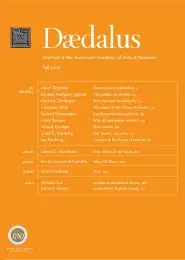The politics of identity
I am never quite sure what people mean when they talk about ‘identity politics.’ Usually, though, they bring it up to complain about someone else. One’s own political preoccupations are just, well, politics. Identity politics is what other people do.
Here’s one example: When someone in France suggested gay marriage was a good idea, many French people complained that this was just another instance of American-style identity politics. (In France, as you know, ‘American-style’ is en effet a synonym for ‘bad.’) ‘Why should les gays insist on special treatment?’ So the French legislature created the Pacte Civil de Solidarité (PACS), whose point is exactly that marriage is open to any two citizens. ‘Much better,’ those people said. ‘Sexuality has nothing to do with the government.’ You might wonder how someone who said that could think that civil marriage should not be open to gays. Isn’t that straight identity politics?
In short, I think that what Sir John Harrington so sagely said of treason is largely true of identity politics: it never seems to prosper only because it has largely won the political stage. But I think there is a way of explaining why identity matters. ‘Identity’ may not be the best word for bringing together the roles gender, class, race, nationality, and so on play in our lives, but it is the one we use. One problem with ‘identity’: it can suggest that everyone of a certain identity is in some strong sense idem, i.e., the same, when, in fact, most groups are internally quite heterogeneous, partly because each of us has many identities. The right response to this problem is just to be aware of the risk.
But another difficulty with social identity is that the very diversity of that list can leave you wondering whether all these identities have anything interesting in common. What did it mean when I added ‘and so on’ just now to a list that ran from gender to nationality?1 Well, you can only answer that sort of question by proposing a theory of identity.
. . .
